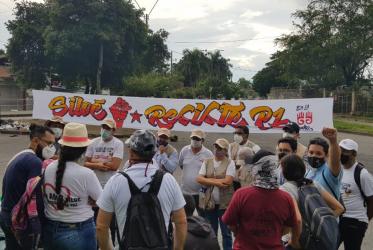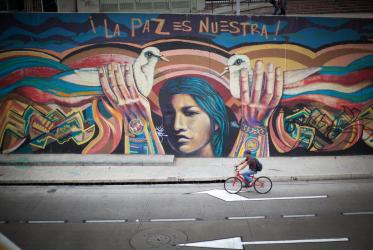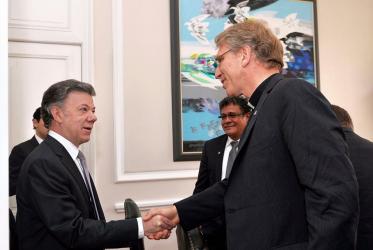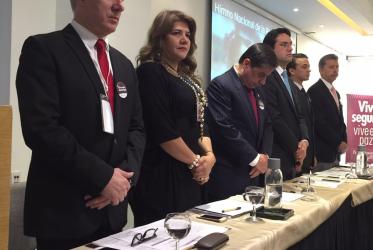Displaying 21 - 40 of 46
WCC urges protection of Colombian peacemakers
19 July 2018
WCC calls for peace in Colombia
09 February 2018
WCC delegation visits Conference of Latin American Bishops
08 February 2018
WCC welcomes new temporary ceasefire in Colombia
06 September 2017
Colombia peace accord brings both joy and concern
19 August 2016
WCC welcomes ceasefire agreement in Colombia
25 June 2016
WCC welcomes monitoring of ceasefire in Colombia
01 February 2016
Faith organizations to play crucial role in Colombia peace process
09 November 2015







